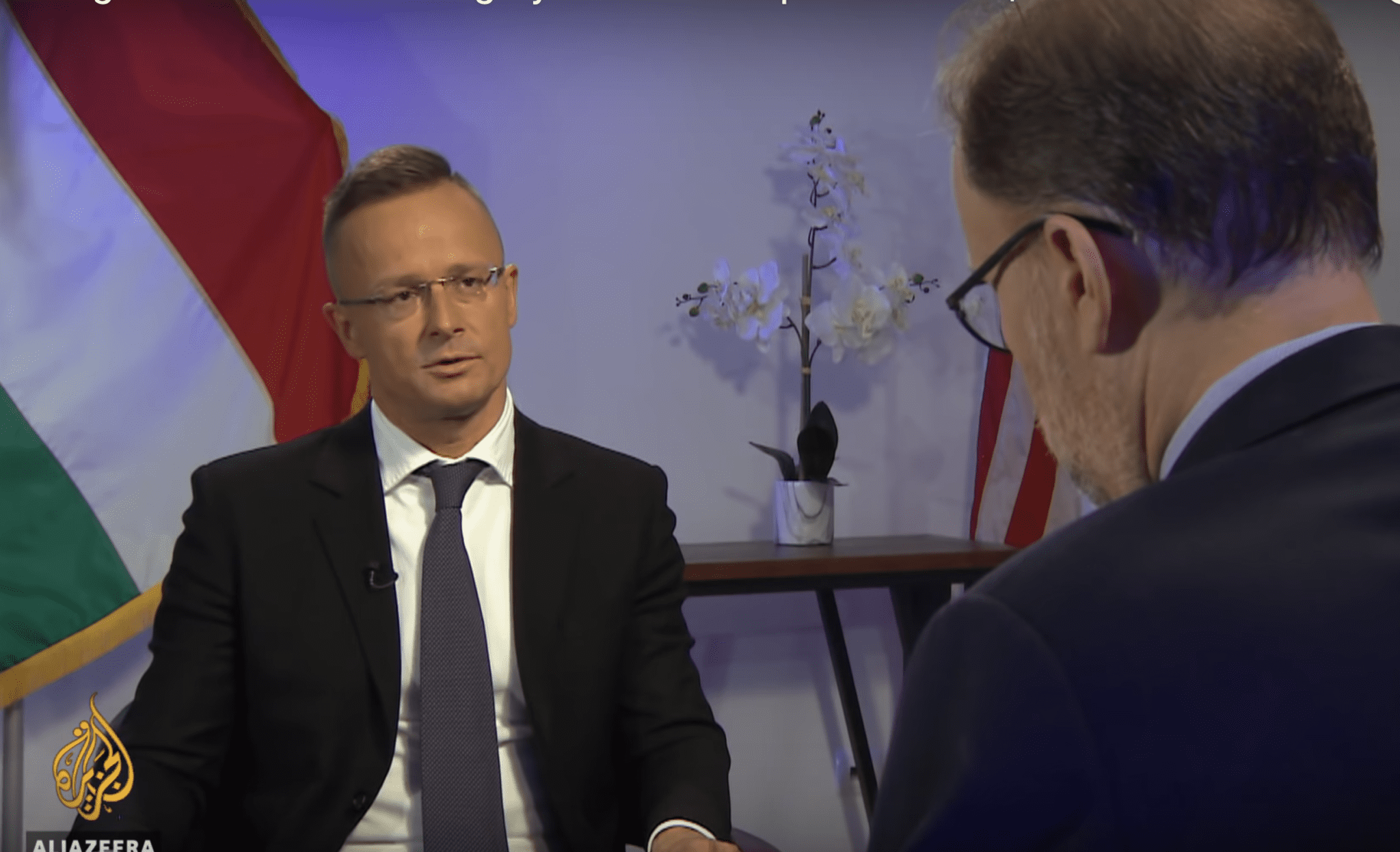In a week filled with a series of tragic news events involving terrorism, such as the Norway bow-and-arrow murders, the murder of a British MP David Amess by another Islamist, and the first anniversary of the beheading of French teacher Samuel Paty, the Qatari financed news channel Al Jazeera has decided to turn its spotlight on democratic standards in Hungary.
The pan-Arabic news channel generously funded by the Qatari state, which itself has been accused of financing terrorist organizations such as the Nusra Front in Syria for years, has put Hungarian foreign secretary Peter Szijjártó on the spot regarding issues like homosexuality, a practice that is also illegal in Qatar, which is a country governed by a strict form of Sharia law.
Show host James Bays started the interview by asking why is there a perpetual conflict between the institutions of the European Union and Hungary. Szijjártó responded by saying that in terms of the number of EU infringement procedures, Hungary ranks in the middle of the list of European countries, Germany, for instance, has a much higher number of such proceedings against them. However, he admitted that the ones ongoing against his government appear to many as more serious, because these are of an ideological nature, arguing about the very principles that European democracies are governed by.
When asked about the child protection legislation proposed recently by his government, the foreign minister explained that their aim is to make the sexual education of children to be the reserve of parents or to be conducted with the consent of the parents, in order to protect minors from graphic sexual content, promotion of homosexuality, or of changing one’s gender. He explained that certain NGOs and LGBTQ activists simply go into schools and kindergartens and start to explain controversial issues to minors through their own optic that should be the exclusive reserve of parents. Parents know their children best, and that is why the government wants to rely on parents to determine what age their children are ready for these discussions and the manner in which they are conducted.
The interviewer also pointed out that the president of the European Commission, Ursula von der Leyen, called the legislation shameful, while Dutch Prime Minister Mark Rutte went as far as suggesting that Hungary has no place in the European Union. Szijjártó replied by saying that Rutte suffers from Hungarophobia and it is not Rutte’s prerogative to say who will or will not be a member of the EU.
Furthermore, the Dutch prime minister should focus on solving his internal domestic crisis as he has been unsuccessful in creating a new government for months, said the minister. He also pointed out that the child protection legislation will be decided in a referendum next year, and denying the Hungarian people’s right to vote directly for the future direction of their country is an anti-democratic attempt from the part of the EU.
The interviewer also accused the majority of Hungarian media of a pro-government bias, to which the minister spontaneously responded, “Oh, I wish that was the case!” Bays then went on to accuse the Hungarian government of involvement in the so-called Pegasus spyware scandal, asking why the authorities spied on left-wing journalists. The question itself implies that today it is established knowledge in the Western mainstream media that the Hungarian government spied on opposition journalists, although the evidence points precisely in the opposite direction — namely that the entire media-scandal was a tool of political hybrid warfare published by a media syndicate financed by US oligarch George Soros, and which fabricated much of the scandal in order to besmirch the opponents of globalist progressivism and what they call “open society.”
Szijjártó himself has made it clear that he will not be drawn into discussions about what tools or methods Hungarian intelligence services are using, but he reiterated the government’s position, that all these methods are entirely in line with the Hungarian legal system and constitution, and no one is being spied on because of his or her profession.
The show host has also mentioned the criticism, according to which Hungary has forced the George Soros-funded Central European University (CEU) to move parts of its operations away from the country, while at the same time it has welcomed the Chinese Fudan University to open a campus in Budapest. The foreign minister pointed out that only a small part of the CEU’s operations were moved to Vienna. In fact, only those that were in violation of the Hungarian legal system guiding universities were actually moved.
On the other hand, Szijjártó had pointed at the hypocrisy of his Western critics, who are up in arms against the strengthening relationship between Hungary and China, while themselves are significantly more involved in trade relations and education with China than Hungary. As a case in point, the foreign minister asserted that Fudan University has campuses in the United States and other countries, as do other Chinese educational establishments, while it is no secret that a large number of well-established Western universities survive on tuition fees paid by Chinese students.





